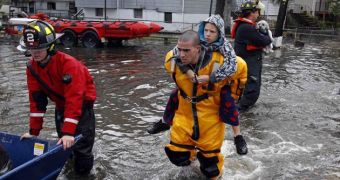In the aftermath of hurricane Sandy and its devastating effects on the US East Coast, the country's Environmental Protection Agency (EPA) decided that it would be best to waive ongoing rules and regulations concerning the use of various gasoline fuels, at least for a short period of time.
Thus, the gasoline sold in the states impacted by this storm will no longer have to abide by federal clean gasoline requirements.
This waiver comes as a result of a collaboration between EPA and the US Department of Energy.
More precisely, both organizations agreed that, but for this waiver, several American states might find themselves suffering from a shortage of fuel.
The official website for EPA reads as follows: “EPA Administrator Lisa P. Jackson determined that, as a result of effects of Hurricane Sandy, extreme and unusual supply circumstances exist, which may result in a temporary shortage of diesel fuel compliant with federal regulations.”
Furthermore, “The federal waivers will help ensure an adequate supply of fuel for emergency response in New Jersey.”
According to the Green Car Congress, the regions which are to benefit from this waiver of federal clean gasoline requirements are: Tennessee, North Carolina, South Carolina, Mississippi, Georgia, Alabama, District of Columbia, New York, Maryland, Connecticut, Delaware, Massachusetts, New Jersey, Pennsylvania, Virginia, New Hampshire, and Rhode Island.
The waiver is to last until November 20, and also allows for the mixing of reformulated and conventional gasoline in several American states.
Apparently, the decision to ease clean gasoline rules stems from the fact that, as a result of the floods and widespread power outages caused by Hurricane Sandy, several petroleum storage facilities have been damaged.
As well as this, the distribution system for petroleum has pretty much been turned topsy-turvy, at least as far as supplying the affected areas is concerned.
“The EPA, in consultation with the Department of Energy (DOE), has evaluated the impact of fuel supplies as a result of disruptions to the fuel distribution system.”
“Based on this evaluation, the EPA has determined, and DOE concurs, that it is necessary to take the following action to minimize or prevent disruption of the supply of gasoline to these areas,” the US Environmental Protection Agency explains.

 14 DAY TRIAL //
14 DAY TRIAL //